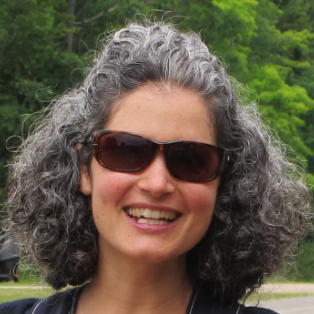Date: October 15, 2021 12 PM PST (3 PM EST)
An estimated 4.5 million students — around 40% of U.S. undergraduates — attend community colleges. Yet degree completion and transfer rates for community college students are low, especially in STEM fields. Given the broad and well-established benefits of field experiences, how might they be more widely deployed for community college students? This conversation will feature instructors who have created successful opportunities for community college students to learn in field environments, often with a research component. Find out what has worked, what has been challenging, and what can be incorporated in your class, program or institution.

James Hewlett
Finger Lakes Community College
James is a SUNY Distinguished Service Professor and Professor of Biology at Finger Lakes Community College (FLCC), as well as Executive Director & Principal Investigator of the Community College Undergraduate Research Initiative (CCURI). He currently serves as the Director of Biotechnology/ Biomanufacturing at FLCC and is a Co-PI on the NSF ATE InnovATE BIO National Biotechnology Education Center. He serves on the Editorial Board of the National Center for Case Study Teaching in Science and the Editorial Board of The American Society of Cell Biology’s CBE Life Sciences Education journal. James is a graduate of Bucknell University (B.S. in Biology) and the University of Connecticut (M.S. in Physiology/Marine Science).

Jimmy Lee
East Los Angeles College
Jimmy is an Associate Professor in Life Sciences at East Los Angeles College where he teaches Cell/Molecular and Evolution/Ecology Biology. As Undergraduate Education Program Coordinator for the Rocky Mountain Biological Laboratory, he
managed the 10-week summer independent research program overseeing 40 students. Jimmy’s field research experience includes Rocky Mountain Biological Laboratory, USC Wrigley Marine Science Center, and McMurdo Antarctic Station. He has a Ph.D. in Biomedical Science from the University of California Riverside


Amanda Robin
University of California, Los Angeles
Amanda is a Ph.D. Candidate in the Department of Ecology and Evolutionary Biology at the University of California, Los Angeles. She is the founder of the Community College Field Biology Alliance, a graduate student-run, 9-month field research internship for community college students. Interns are recruited from community colleges in the greater Los Angeles area and guided through the process of designing, implementing, and presenting an original field research project. After graduation Amanda hopes to continue to contribute to the efforts of building a bridge between community college students and biological field research opportunities. When she is not coordinating programming for this internship, she can likely be found in the forest observing squirrels for her dissertation work or crocheting!
Alison Varty
College of Siskiyous
Alison studied biology and environmental studies at the University of Michigan as an undergraduate where she also spent two summers taking classes and conducting research at the University of Michigan Biological Station. She went on to earn a graduate degree from the University of Wisconsin-Madison in botany with a focus on restoration ecology. She taught sustainability-focused, service-learning courses at Loyola University before settling at College of the Siskiyous in Northern California for the last 12 years. At COS, Alison teaches biology, environmental science, and botany courses for general education students, life-long learners, and STEM majors. Her current research interests include online science teaching and learning and issues around equity and STEM achievement. She does all of this while also raising a family and spending an embarrassingly large amount of time skiing, biking, trail-running, and botanizing in the local mountains.

Alicia Farmer
University of Michigan Biological Station.
Alicia is the Transforming Learning Program Manager at the University of Michigan Biological Station. She has worked in student services and academic program development for 20 years and taught Anatomy and Physiology Lab at Washtenaw Community College in the late ’90s. She has a J.D. from the University of Michigan.


